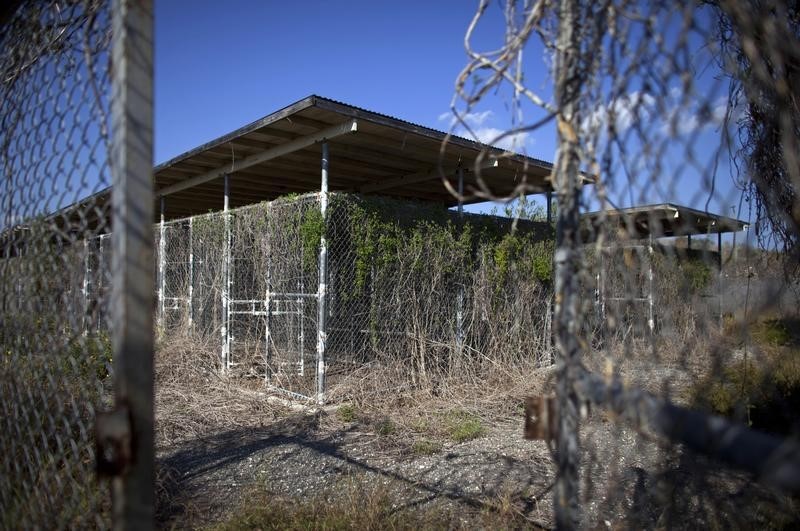Investing.com’s stocks of the week
By Patricia Zengerle and Doina Chiacu
WASHINGTON (Reuters) - The U.S. Senate overwhelmingly passed a sweeping defense policy bill on Tuesday and the White House said President Barack Obama will sign it, despite provisions making it more difficult to close the military prison at Guantanamo Bay, Cuba.
The Senate vote was 91-3 in favor of the measure, which authorizes $607 billion in defense spending and includes $5 billion in cuts excluded from an earlier version vetoed by Obama.
The president had objected to the previous bill both because of the Guantanamo language and because it eased military spending cuts without also loosening restrictions on domestic spending.
The defense bill, which was revised to reflect a two-year budget deal Obama signed into law last week that resolved the spending dispute, easily passed the House last week.
The votes for the National Defense Authorization Act, known as the NDAA, dealt a blow to Obama's pledge to close the prison before leaving office in 2017.
White House spokesman Josh Earnest said there are too many important provisions in the defense bill for another veto.
"I would expect that you would see the president sign the NDAA when it comes to his desk," he told a news briefing.
"That certainly does not reflect a change in our position, or the intensity of our position, about the need to close the prison at Guantanamo Bay," Earnest said.
Together with extending a ban on transferring Guantanamo detainees to the United States, the bill imposes new restrictions on transfers to third countries, including Libya, Syria, Yemen and Somalia.
Even lawmakers who want to close the Guantanamo prison, such as Republican Senator John McCain, have expressed frustration that Obama, who has been in office since 2009, has not yet sent Congress his plan for closing it.
Obama is expected to submit a plan this week. It will face stiff resistance in Congress and there has been talk that he might resort to an executive order to close the prison.
That suggestion infuriates Republicans, many of whom consider Guantanamo essential for the detention of suspected foreign militants. Obama and lawmakers who favor closure, mostly his fellow Democrats, view it as a damaging symbol of abuse and detention without charge.
Senate Democratic leader Harry Reid said it was now up to Obama to decide how to move ahead. "Congress has done their job... they've spoken on Guantanamo. The president will do what he has to do," he told reporters.
When asked about a possible executive order, Earnest said the administration's focus now is getting Congress to consider its plan.
The House passed the NDAA by 370-58. That margin, like the Senate vote, far exceeds the two-thirds majority to override a veto.
The Senate also voted 93-0 to send to Obama another bill affecting Guantanamo. That military construction appropriations measure bars spending to renovate or build facilities in the United States to house former Guantanamo detainees. The White House has not said whether Obama plans to veto that measure.
